Why you need to know Jonathan Ogle and Flip Croft-Caderao.
Because you will. Eventually. Whether it’s for creating the fastest-growing ad agency in Dallas, incubating the most culture-driven environment to...
Read More »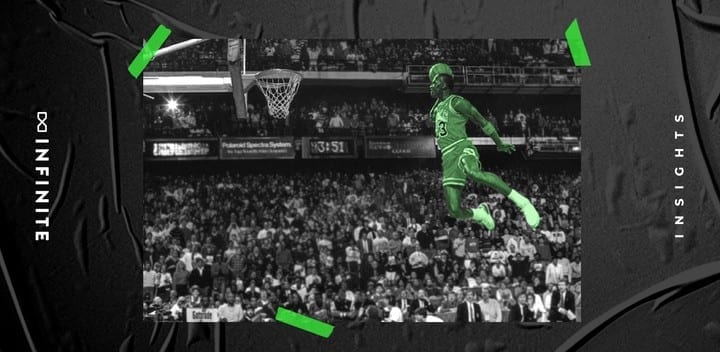
“Winning has a price. And leadership has a price.”
– Michael Jordan
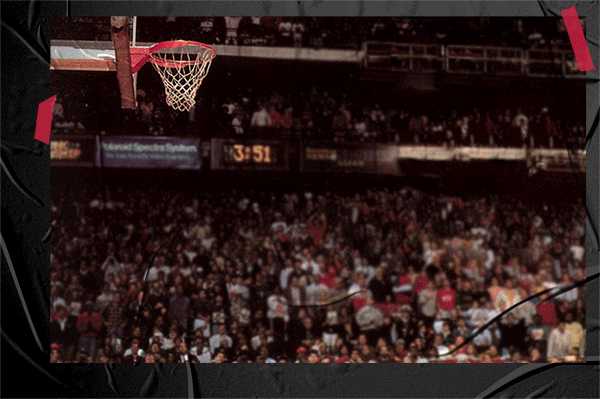 To anyone who watched ESPN’s ‘The Last Dance’ you saw a side of Michael Jordan’s competitive spirit that drove everything he did. You don’t get to repeat a three-peat without a relentless focus on becoming the best. Jordan and the Bulls of that era were no doubt the best in the world, maybe even of all time.
To anyone who watched ESPN’s ‘The Last Dance’ you saw a side of Michael Jordan’s competitive spirit that drove everything he did. You don’t get to repeat a three-peat without a relentless focus on becoming the best. Jordan and the Bulls of that era were no doubt the best in the world, maybe even of all time.
What made The Last Dance interesting was that it documented through a number of stories, the other side of Jordan… the other personality you don’t see when looking at his iconic Air Jordan logo or hearing the ‘Like Mike’ Gatorade jingle.
That other side was the competitive drive that made even his own teammates call him four letter words. He pushed people to compete with him, to fight with him. He wasn’t afraid to call out anyone for their mistakes, or get in someone’s face if they missed a shot.
Phil Jackson, head coach of the Chicago Bulls, said, “the Greatness of Michael Jordan is his competitive drive, the weakness of Michael Jordan is his competitive drive.”
His scrimmage with the USA Dream Team in the ‘92 Olympics depicts a remarkable example of how Magic Johnson pushed Michael Jordan to rise to the highest level of competition even in a practice. Magic said ‘Look man, if you don’t turn into Air Jordan, we’re going to blow you out.’ As it turns out, Michael Jordan did end up turning into Air Jordan and scored over an over consecutively to win the match. As the team slowly filed out of the gym and piled into the team bus, the mood was thick. Jordan broke the tension by saying, “How did you like that ass kicking we just gave y’all?”
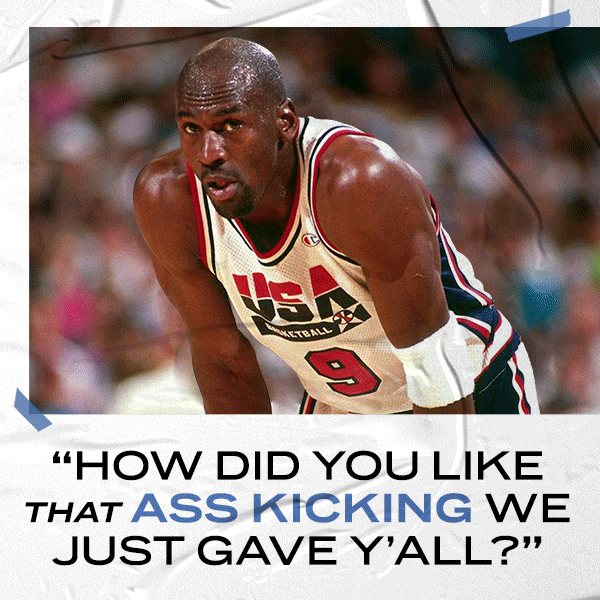
This was a recurring example of how Jordan turned trash talk into fuel to ignite his fire for winning. ‘It was personal to me,’ he said. I swear he took everything personal.
Once when a rookie, LaBradford Smith, scored 37 points against the Bulls and Jordan didn’t have a particularly great game, Jordan “said” Smith nudged him and whispered “Nice game, Mike.” Jordan later said that those words were personal and took vengeance on him by scoring 36 in the first HALF the next night.
Constantly pushing people to compete, to be their best, to perform in difficult situations was how Jordan led. He didn’t apologize for it. Instead he just set the standard for what he expected from his teammates.
“I pulled people along when they didn’t want to be pulled. I challenged people when they didn’t want to be challenged, and I earned that right because my teammates who came after me didn’t endure all the things that I endured. Once you joined the team, you lived at a certain standard that I played the game, and I wasn’t gonna take anything less. Now if that meant I had to go in there and get in your ass a little bit, then I did that. You ask all my teammates, ‘The one thing about Michael Jordan was he never asked me to do something that he didn’t f**king do.’ When people see this, they’re gonna say, ‘Well, he wasn’t really a nice guy, he may have been a tyrant.’ Well, that’s you. Because you never won anything. I wanted to win, but I wanted them to win and be a part of that as well. Look, I don’t have to do this. I’m only doing it because it is who I am. That’s how I played the game. That was my mentality. If you don’t wanna play that way, don’t play that way.”
At the end of the day, I hope I play that way.
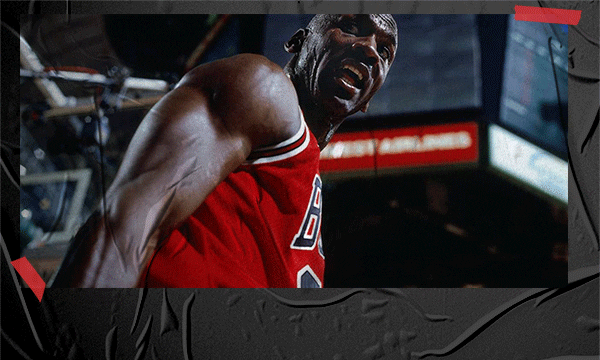
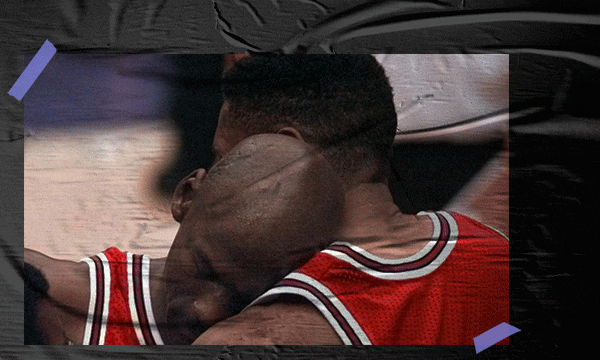
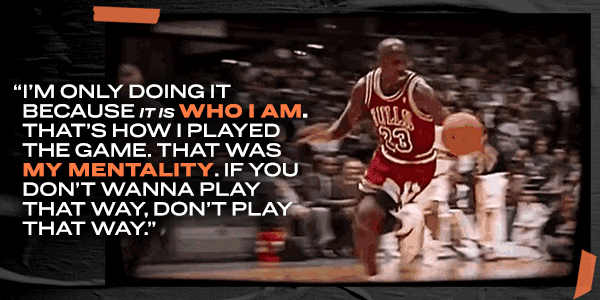
Competition was the driving force to Jordan’s success and I find that competition has merit for a brand’s success.
Jordan forced people to push him so he would be faster, stronger, more versatile. Aren’t those simple competitive advantages we can all strive for in our business?
As Infinite worked with ESPN to promote 30 for 30 films, I have learned that we are competing for people’s attention. Great brands have learned to craft their messaging and creativity so that their brand experience is what people remember when they walk away.
What good is tracking data if you don’t use it to become better? Brands talk about data all the time, but rarely choose the data that drives long-term business results.
Teams should agree on 3-5 numbers that are leading indicators of your business’s growth. Then you can use these metrics as a baseline to compete with month over month. If you aren’t seeing improvement, you aren’t getting better.
In basketball there are a ton of stat junkies that want to measure everything. Let those guys play fantasy sports. I want three numbers that help my business grow, and I want my team focusing on growing those numbers. When you measure points, rebounds, and assists, you will win games.
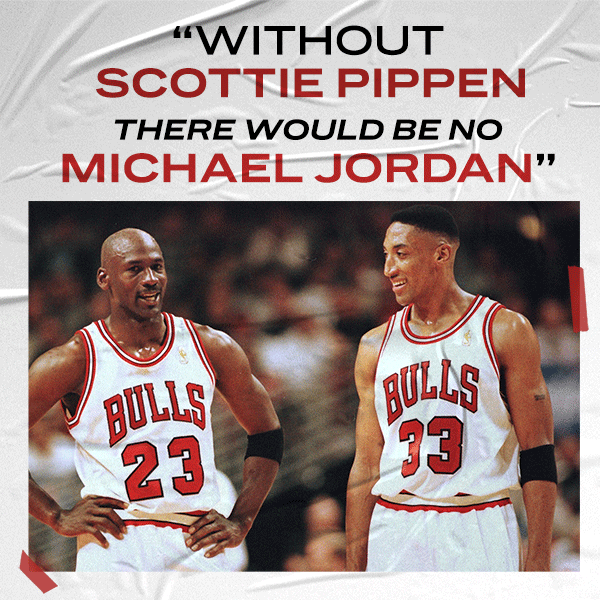
Every great team has players that complement the others. As Jordan said, without Scottie Pippen there would be no Michael Jordan. Agencies can help brands see the consumer in a way that they often can’t. Brands often struggle to look objectively at what is happening. That is why great brands have built long lasting relationships with their partners; they have formed teams that make the other better.
This is no easy task.
It takes the ability for people to build trust as well as mold and shape their habits and behaviors to complement the energy of their teammates.
That is one word that you will notice Jordan use throughout The Last Dance – energy. He followed his energy; he was fueled by others’ energy; he could sense how to turn energy in his favor to win 6 championships. What better way to lead than to set the example?